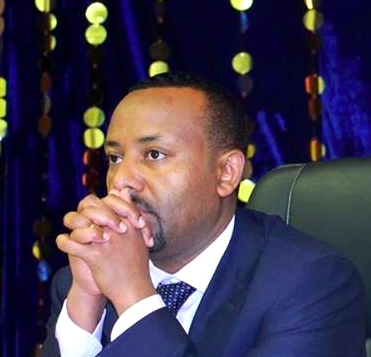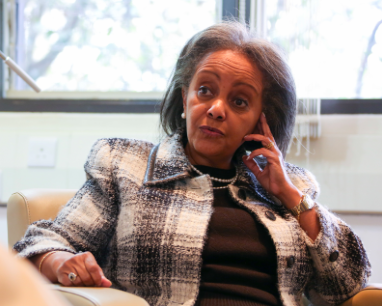4 Positive Changes for Women in Ethiopia in 2018
2018 was a crucial year for Ethiopian women. At the start of 2019, we at Seeds want to take a moment to pause and celebrate these gains as we look forward to the changes still to come, and the reforms we still believe are crucial for the future of our Seeds’ mothers and children.
Prime Minister Abiy Ahmed Fills Half of His Cabinet with Women

In a speech, the newly elected Prime Minister paid particular homage to his mother, and all Ethiopian mothers, for their role in raising leaders like himself, and the leaders still to come. He later went on to declare that he would fill half of his cabinet with women and dismantle the misguided belief that “women can’t lead.” The Prime Minister carried through on his promise, appointing women to crucial leadership positions, including Aisha Mohammed to Minister of Defence, and Muferiat Kamil to the new position as Minister of Peace.
First Female Supreme Court Chief Sworn In

Maeza Ashenafi, a women’s rights activist and judge was appointed the first female supreme court chief. Maeza Ashenafi has a long track record advocating for women’s rights in Ethiopia: she founded the Ethiopian Women’s Lawyers Association and also helped initiate the first bank for women, Enat Bank. As a lawyer, her most famous case resulted in outlawing the kidnapping and forced marriages of young Ethiopian girls.
Ethiopia Appoints its First Female President

Sahle-Work Zewde was appointed the first female president in October. She has held positions in the UN, and remained an integral force in peacekeeping efforts in Africa. In an article for the New York Times, Selam Musse, a gender and media consultant based in Addis Ababa, explained why Sahle-Work Zewd’s appointment matters: “Having a female leader ‘speaks volumes for women and knocks on every door,’ she said, ‘especially in a country where patriarchy plays a decisive role in political, social and economic structure of our country’s politics.’”
Ethiopia and bordering Eritrea Declare Peace, Reuniting Families

According to Reuters, in 1998 more than 70,000 Ethiopians were “wrenched from their families, put on buses and trucks bound for Eritrea - and given travel papers marked ‘Expelled-Never to Return.’” In July, Ethiopia and Eritrea agreed to a peace deal set to change that. Mothers who had been separated from their children, with little to no hope that they would ever speak to them again, now have the opportunity to hope for reunion.
